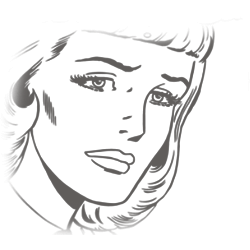The Cynical Girl: Hiring for Fit: The Adaptive Unconscious |  |
| Hiring for Fit: The Adaptive Unconscious Posted: 02 Jan 2013 03:45 AM PST
I hate it. You know this. I have said it before and I will say it again: There is no reliable or valid study out there that shows a correlation between a company’s performance and hiring for fit and culture. But here’s what we do know: Big data can show us how hiring for fit and culture translates into racism, sexism, ableism and ageism. Here’s a story. I just read a book called Strangers to Ourselves: Discovering the Adaptive Unconscious. I learned that much of what we think we know about ourselves and our behaviors isn’t really true. There’s a part of our brain called the adaptive unconscious that governs a ton of automated processes — breathing, digesting food, blinking, balance — but it also processes 11,000,0000 pieces of data each second and tells us what’s important, relevant and meaningful. You know how you can go to a cocktail party and stand there, hold a drink, tune in/out of conversations and somehow snap to attention when someone across the room mentions your name? The body is a huge data processing machine and your adaptive unconscious is scanning everything. It helps to sort out what’s relevant and what isn’t important. You don’t even have to think about it. Dr. Timothy D. Wilson described the adaptive unconscious as a large ‘spin doctor’. Our mind interprets information outside of our awareness. Then our unconscious mind renders a conclusion and pushes it into our consciousness before we even have time to think about it. And the faster we need to process the information, the more error-prone it becomes. Ask yourself — How do you know when a situation is dangerous? How do you look at someone and get a funny feeling? Why do you feel a spidey-sense when a stranger walks in a room? That’s a small part of the adaptive unconscious in motion. So what does this mean for the hiring process? Well, good companies use reliable and valid hiring criteria to judge candidates. They judge people based on competencies. But what if you’re a normal hiring manager without a robust recruiting process — but with good intentions — and you have to decide between two equal candidates based on fit? Well, you need to be careful. A hiring decision on fit is probably coming from your adaptive unconscious, and sometimes those decisions could be influenced by primal instincts that you don’t understand.
And the bias doesn’t have to be illegal. Even though it makes no sense and you would deny it, you might rule out hiring candidates from Michigan State because you went to Penn State. Don’t look at me — or some book on the adaptive unconscious — to disprove the reliability of hiring for fit. Use your payroll system, CRM, ATS, and performance management platforms to check the data and measure it against your hiring philosophy.
I love it when big data meets the adaptive unconscious. And I wonder — what story about your organization’s unconscious behavior is told when technology become a ‘nonsconscious translator’ and audits your hiring process? Go find out. That’s a really good use of your time in Human Resources. And go read this book! |
| You are subscribed to email updates from The Cynical Girl To stop receiving these emails, you may unsubscribe now. | Email delivery powered by Google |
| Google Inc., 20 West Kinzie, Chicago IL USA 60610 | |



No comments:
Post a Comment